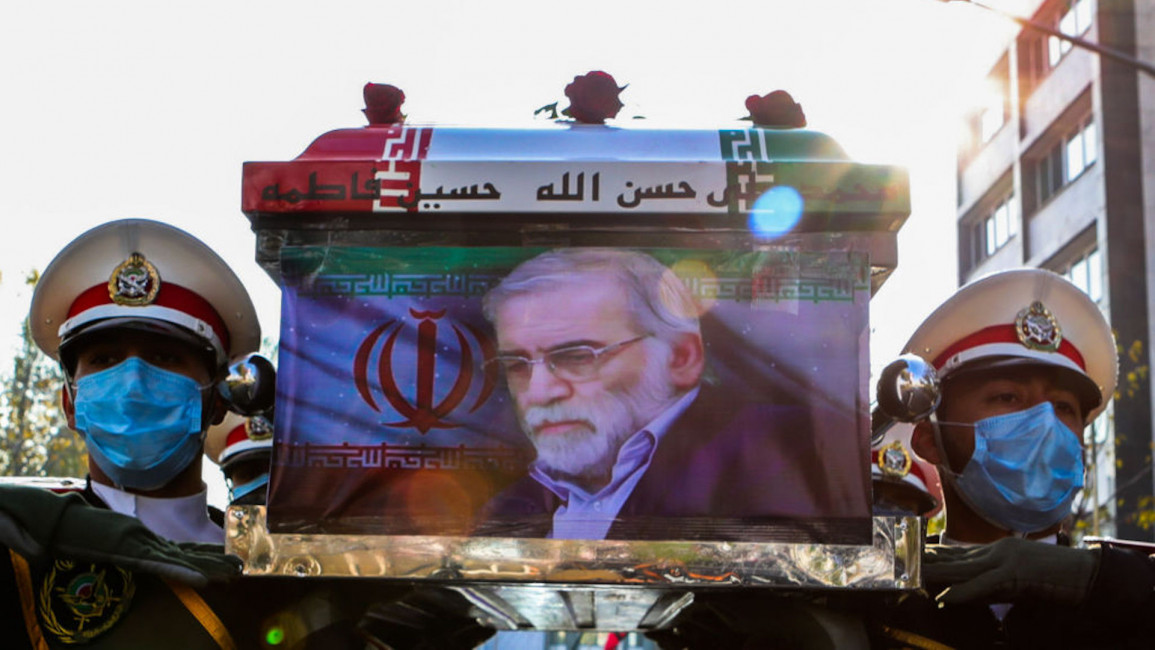Iranian nuclear scientist was killed by one-ton 'Israeli' robot gun: report
Mohsen Fakhrizadeh, known as the "father" of Iran's atomic programme, was killed last year in a suspected Israeli intelligence service operation.
Mossad agents spent months smuggling the high-tech, one-tonne machine gun into Iran before assembling it piece-by-piece.
A team of 20 agents, comprised Israeli and Iranian nationals, built the machine gun then hid it inside a Nissan pick-up truck.
The remote-controlled weapon fired 13 high-accuracy rounds as the 59-year-old nuclear scientist was on his way to his country residence on 27 November.
The scientist's wife, who was sitting next to him, emerged unscathed from the attack.
|
|
The execution came on the heels of an eight-month surveillance operation by Israel's intelligence agency, according to intelligence sources cited by the British weekly.
Initial reports suggested he was gunned down by armed men, while a Revolutionary Guards official later blamed a "satellite-operated" gun using artificial intelligence.
Read also: Iran says armed forces member involved in nuclear scientist's murder
Israel had gathered evidence proving Fakhrizadeh had worked on several nuclear warheads, each one able to cause five Hiroshimas.
Iran pointed the finger at Israeli agents shortly after the attack, but Israel declined to comment
Fakhrizadeh is considered the mastermind of a covert atomic bomb programme halted in 2003. Iran has long denied seeking to use nuclear energy for belligerent purposes.
Iran has "secretly assessed that it will take six years" before a replacement for Fakhrizadeh is "fully operational" and that his death had "extended the period of time it would take Iran to achieve a bomb from about three-and-a-half months to two years", according to The Jewish Chronicle’s report.
Former US President Donald Trump's role in the hit remains unclear, with some analysts arguing that he was making his mark before leaving office, while others denied American involvement.
Follow us on Facebook, Twitter and Instagram to stay connected



